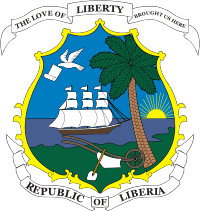Yoland,
Votre histoire mérite d'être publiée sur la page principale de ce blog si cela vous convient. Accepteriez-vous de rédiger un message, voire plusieurs posts (dans le jargon blog) que je publierai ? J'ai déjà pensé inviter des personnes à s'exprimer sur un site internet (resté au stade d'idée). Pourquoi ne pas se lancer maintenant avec ce blog ? Je me sentirais privilégiée d'accueillir les contributions d'auteurs comme vous. Si votre réponse se révèle positive, mon adresse e-mail pourrait vous servir pour m'envoyer vos textes : elodie.windels@yahoo.co.uk.
En ce qui concerne les mémoires d'Helene Cooper, The House at Sugar Beach : In Search of a Lost African Childhood, j'ai trouvé la description (en anglais) sur Amazon intéressante. En voici le lien http://www.amazon.com/House-Sugar-Beach-African-Childhood/dp/0743266242. De Cooper, je ne connais que la route à Monrovia qui porte ce nom : Cooper Road servant de raccourci entre Congo Town/ELWA et le stade S.K.D. Stadium lorsqu'on va vers l'aéroport.
The Washington Post about the House at Sugar Beach (extracts)
"On Feb. 6, 1820, the American Colonization Society, an incongruous mix of mostly Quakers and slaveholders, dispatched a ship from New York Harbor in a bold experiment to repatriate 88 freeborn blacks to Africa's steamy west coast. When the vessel arrived at its destination a few months later, its passengers, far from being welcomed, were regarded with hostile suspicion by a native population still ruthlessly plying the slave trade. For two years, the increasingly ragged immigrants trolled that shore, burying their brethren in one malarial swamp after another until Elijah Johnson, a former U.S. soldier, finally stood on a tiny island that offered neither shelter nor fresh water and refused to move. A country called Liberia was founded.
Helene Cooper, formerly with the Wall Street Journal and now diplomatic correspondent for the New York Times, is Elijah Johnson's great-great-great-great-granddaughter. The House at Sugar Beach is her dramatic memoir of Liberia in the years preceding and after its savage revolution in 1980. Along with other descendants of freed black colonists, Cooper's family formed an elite firmly in control of Liberia's wealth and government. They were known as Congo people. The indigenous African tribes, which made up 95 percent of the Liberian population, subsisted in poverty. They were called Country people."
Wendy Kann, "as white Zimbabwean" concludes her review like this: "Cooper, I am certain, would join me in a fervent hope that the cruel distinctions between "groups" in Africa will one day vanish. Then, perhaps, our common humanity will be the only thing that counts."
A l'instar d'Anthony (A.M.) Daniels (généralement connu sous le pseudonyme de Theodore Dalrymple), écrivain et psychiatre retraité, je trouve l'histoire du Libéria fascinante. En voici un aperçu, extrait du site internet The Skeptical Doctor dédié à l'œuvre de Theodore Dalrymple.
"Few countries have as interesting a history as that of Liberia. Founded in 1822 as a refuge for freed African slaves in America, the country has never been exactly African or exactly Western, but a kind of accommodation between the two. The white Americans who paved the way for black settlers there were not just -- and perhaps not even mostly -- motivated by humanitarianism but also by a desire to ensure the purity of white America in the face of the inevitable end of slavery. After suffering through indignity and injustice, the former slaves were anxious to find their own home in Africa but they had nonetheless become acculturated by American values and political ideals, so that they viewed their new home as a sort of America in exile. Complicating matters was the fact that, at the time of its founding, there were already Africans living on the land designated Liberia. The freed slaves, who came to be called Americo-Liberians, viewed the African natives much as they had themselves been viewed by white Americans: as savages. (…) [A]fter successfully maintaining power for 133 years, they were overthrown in 1980 by the "natives", lead by Samuel Kanyon Doe, an event that set in motion an orgy of tribal hatred and violence. A terrible civil war commenced in 1989, during which the capital, Monrovia, was thrown into anarchy. Doe was himself overthrown in 1990 and was tortured and killed by his enemies. Anthony Daniels arrived in the country in March 1991 to see for himself the rapid decline of order and civility and the consequent annihilation of Monrovia. As this period coincided with a brief lull in the civil war (a precarious peace enforced by international peacekeepers), his visit was relatively safe and therefore afforded Daniels an opportunity to investigate the aftermath of the violence. (…) There is no question that the daily lives of ordinary Liberians were materially better under the Americo-Liberians, but how important is this fact if one's religious beliefs are compromised in the process?."
